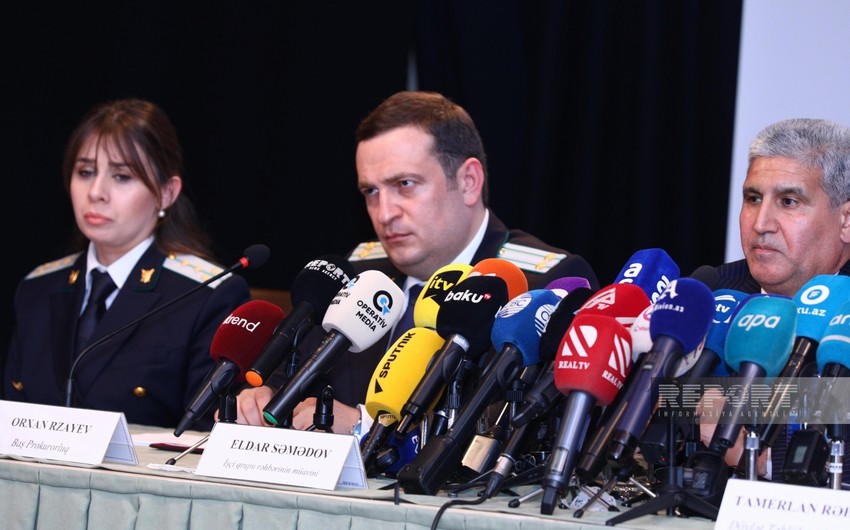Armenia grossly violated the provisions of the Geneva Convention relative to the Treatment of Prisoners of War, the Geneva Convention relative to the Protection of Civilian Persons in Time of War, and the Protocol Additional to the Geneva Conventions of 12 August 1949, and relating to the Protection of Victims of International Armed Conflicts (Protocol 1) while burying the persons who went missing during the first Karabakh war, Orkhan Rzayev, the head of the Criminalistics Department of the General Prosecutor's Office, told a briefing held on April 30, Report informs.
Rzayev mentioned that according to the requirements of the Geneva Convention relative to the Protection of Civilian Persons in Time of War, the parties to the conflict are obliged to bury the bodies individually, confirm the death beforehand, determine the identity of the dead persons, and prepare a report on this: "Under the Geneva Convention, the parties to the conflict must ensure that the deceased are buried with dignity and, as far as possible, in accordance with the requirements of the religion to which they belong, and that they are properly protected and marked so that they can always be found. Based on the current state of the human remains discovered during the inspection of mass graves, it was determined that they were buried on top of each other," he added.


 https://static.report.az/photo/f0ff3d34-853c-3574-95d8-73b3bc25e971.jpeg
https://static.report.az/photo/f0ff3d34-853c-3574-95d8-73b3bc25e971.jpeg

